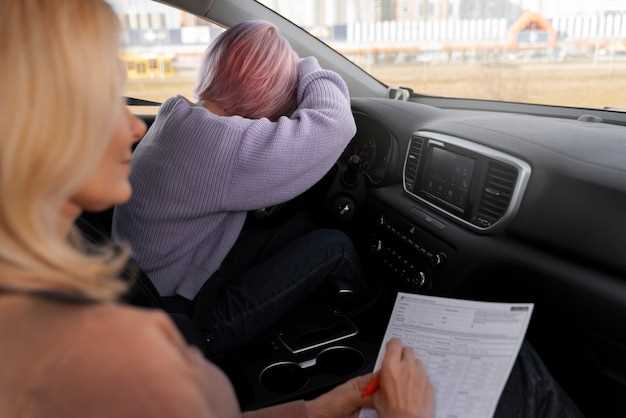
How Traffic Tickets Affect Motorcycle Insurance Rates

Receiving a traffic ticket can have significant repercussions for motorcycle riders, particularly when it comes to insurance premiums. Motorcycle insurance rates are influenced by a variety of factors, including the rider’s history of traffic violations. As insurers evaluate risk, a ticket for speeding, reckless driving, or other infractions can lead to increased premiums, reflecting the elevated risk associated with such behavior.
Traffic violations serve as a clear indicator of a rider’s driving behavior and safety. Insurance companies analyze this information to determine the likelihood of future claims. Consequently, riders with multiple tickets may find themselves facing steep hikes in their insurance premiums. Even a single violation can sometimes result in a noticeable increase, impacting financial planning and overall affordability for motorcycle enthusiasts.
Moreover, the duration for which these tickets affect insurance rates varies. Some infractions may remain on a rider’s record for several years, introducing long-term implications for their insurance costs. Understanding how traffic tickets influence motorcycle insurance is crucial for riders aiming to maintain reasonable premiums while enjoying the freedom of the open road.
How Traffic Violations Influence Premium Increases

Traffic violations have a significant impact on motorcycle insurance premiums. Whenever a rider is issued a citation for offenses such as speeding, reckless driving, or driving under the influence, insurance companies take note. These violations signal to insurers that the rider may be a higher risk on the road, which often leads to increased premiums.
Insurers typically categorize violations based on severity. Minor infractions, such as running a stop sign, might result in a slight increase in premiums, while more serious violations, like DUI, can lead to drastic hikes. The severity of the offense not only affects the immediate rate increase but also the duration of its impact; serious violations may remain on a rider’s record for several years, perpetuating higher costs.
Moreover, the frequency of violations also plays a crucial role. A single ticket may result in a moderate increase, but multiple infractions can compound the risk level perceived by insurers. Each additional violation raises the likelihood of future claims, prompting companies to adjust premium rates accordingly. This cumulative effect can lead to substantial financial consequences for riders who fail to adhere to traffic regulations.
In addition, different states have varying laws and penalties for traffic violations, which can influence premium rates. Insurers often evaluate the local regulations and the frequency of violations within that area, leading to differing impacts on premiums based on geography. Therefore, riders must be aware of both their driving behavior and the legal framework in their location.
Ultimately, maintaining a clean driving record is essential for keeping motorcycle insurance premiums manageable. Riders who prioritize safety and adhere to traffic laws not only protect themselves on the road but also secure better financial outcomes in their insurance policies.
Comparing Insurance Rates Before and After a Ticket
When a motorcyclist receives a traffic ticket for violations such as speeding or reckless driving, the implications extend beyond immediate legal consequences. One of the most significant repercussions is the impact on motorcycle insurance rates. Insurance companies assess risk based on a variety of factors, including driving history and previous violations. Thus, a traffic ticket can lead to noticeable changes in premium rates.
Before receiving a ticket, motorcyclists often enjoy competitive insurance rates, especially if they maintain a clean driving record. Insurers typically reward these drivers with lower premiums, reflecting their perceived lower risk. However, after a ticket is issued, this perception shifts. Insurance providers may classify the motorcyclist as a higher risk due to the violation, which can lead to increased rates upon policy renewal.
The extent of the increase in insurance rates can vary significantly based on the severity of the violation and the insurer’s policies. For minor infractions, rates may rise modestly, while more serious offenses can result in substantial increases. For instance, a speeding violation may cause a moderate hike in premiums, but a ticket for driving under the influence could lead to severe repercussions, including a sharp spike in rates and potential difficulties in obtaining insurance.
In conclusion, comparing insurance rates before and after receiving a traffic ticket highlights the importance of maintaining a clean driving record. Motorcyclists should be aware that even a single violation can adversely affect their insurance premiums and consider driving carefully to avoid such situations. This proactive approach can help maintain lower insurance costs and ensure better coverage options in the future.
Strategies to Mitigate Premium Hikes After a Violation

Receiving traffic violations can lead to increased motorcycle insurance rates, but there are several strategies that riders can employ to mitigate these premium hikes. Understanding these approaches can help maintain affordable insurance costs even after an infraction.
One effective strategy is to enroll in a defensive driving course. Many insurance providers offer discounts for completing such courses, as they demonstrate a commitment to safety and reducing future violations. By proactively enhancing driving skills, riders can signal to insurers that they are serious about safe riding practices.
Another method involves shopping around for insurance. Different companies assess risk and penalties differently, which means that a violation may impact premiums variably across providers. Getting quotes from multiple insurers can reveal more favorable rates, allowing riders to find a better deal despite their recent violation.
Maintaining a clean driving record moving forward is equally important. Insurance companies typically consider the overall driving history, and demonstrating responsible riding behavior post-violation can gradually offset its impact on premiums. Additionally, remaining claims-free for an extended period might help individuals regain access to lower rates.
Utilizing safe riding habits consistently can also contribute positively. Engaging in regular motorcycle maintenance, using safety gear, and abiding by traffic laws can lower the risk of future violations. Some insurers offer rewards for safe riding, which can counterbalance potential increases in premiums.
Lastly, if a violation was a minor one, riders may consider requesting a reconsideration of their rate increase with their insurer. Building a good relationship with the insurance company and discussing mitigating circumstances may lead to a more favorable outcome regarding premium adjustments.